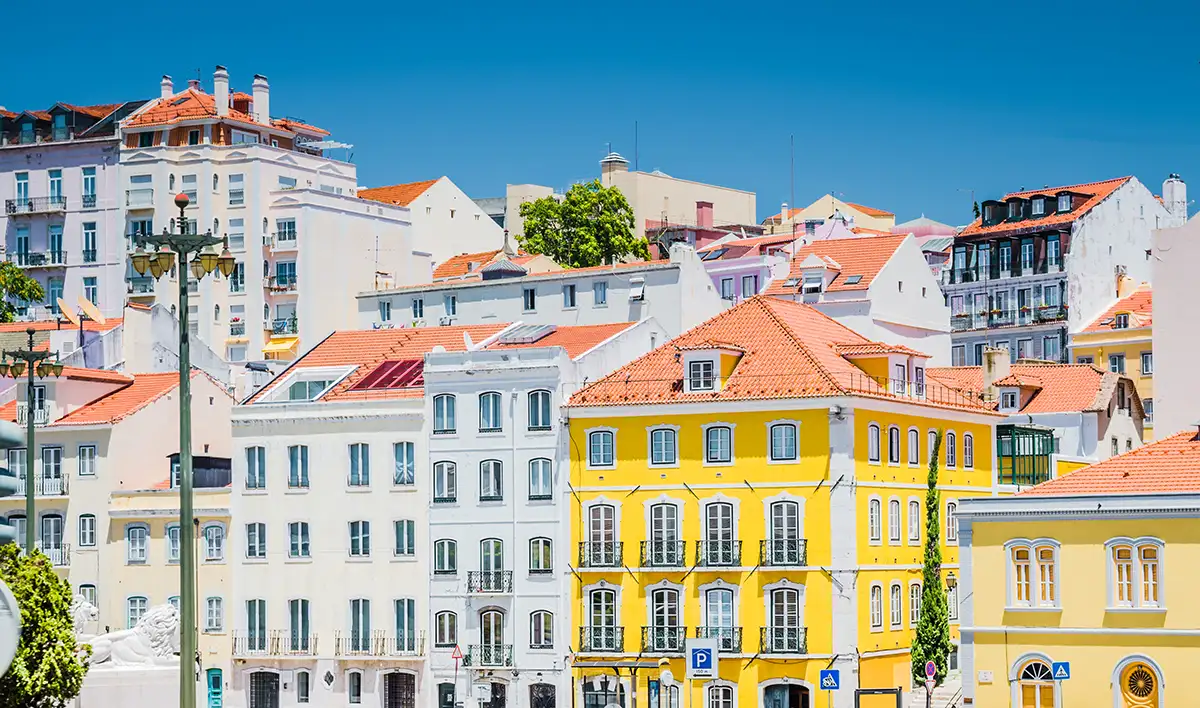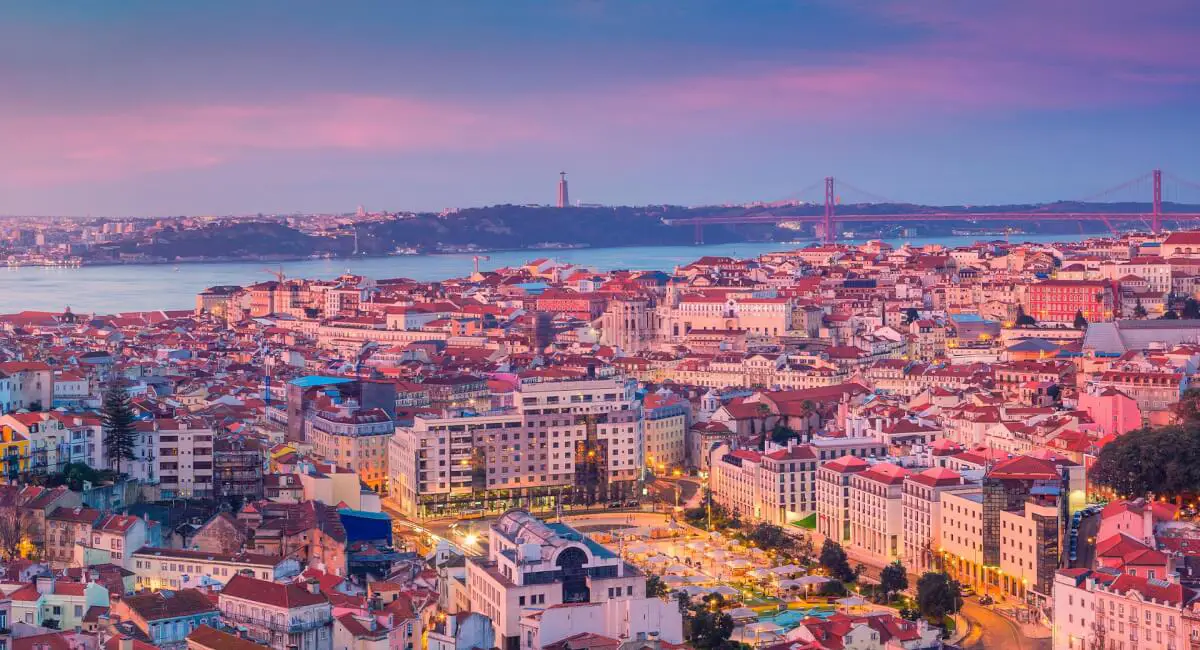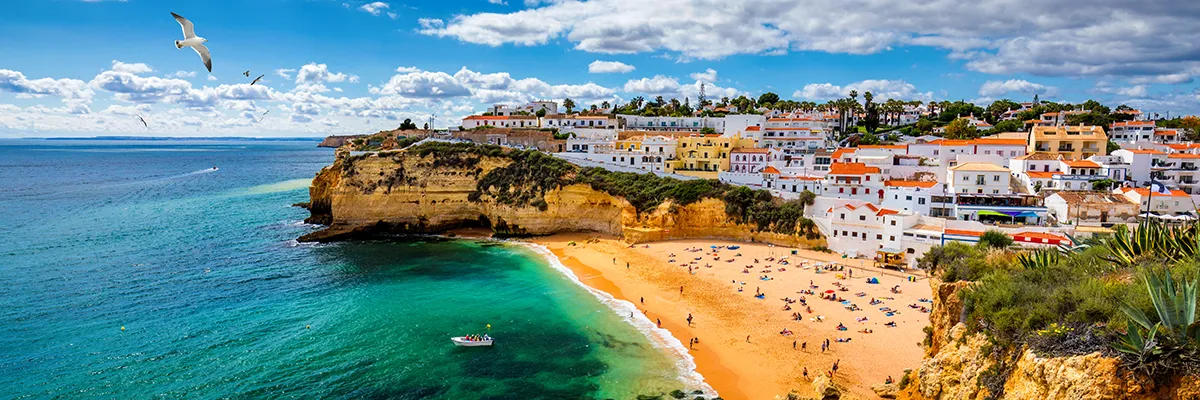
The notion of acquiring Portuguese residency through property investment has long captured the interest of international investors, who are drawn to Portugal’s stable economy, favourable lifestyle, and esteemed Golden Visa. Established in 2012, the Portuguese programme quickly became a benchmark among residency by investment options across Europe, especially for those seeking to buy property in Portugal and to get residency for it. However, legislative reforms in 2023 have significantly altered the landscape, and prospective investors must now navigate a different set of pathways if they wish to secure residency in Portugal through economic contributions.
Governmental Reforms and How They Affected Property Investments and Portugal Residency
On the 16th of February 2023, former Portuguese Prime Minister António Costa introduced the Housing Bill to address real estate speculation and high rents, including a proposal to end the Golden Visa programme as a way to revive the country’s economy. This initiative culminated on the 6th of October 2023, when the bill became law, officially discontinuing the real estate option within the Golden Visa. Under this new legislation, the Portuguese Golden Visa no longer grants residency status through real estate investments.
Now, in October 2024, a year has passed since the Portuguese government enacted the measure, a sweeping policy designed to address the nation’s pressing housing crisis. According to the former government, real estate speculation was attributed to the alleged Golden Visa frenzy, and so, the exclusion of the real estate option should have controlled the surging rental prices. Introduced with considerable political fanfare, the bill was expected to relieve pressures in high-demand areas and improve affordability for local residents. Yet, as time unfolds, its effectiveness remains questionable, with many arguing that the initiative has yet to deliver on its promises.
Critics of the Housing Bill, including prominent political figures and industry experts, have increasingly voiced concerns over its practical impact. Among them, Lisbon’s mayor Carlos Moedas and leaders from the Madeira regional government contend that the measures overlook the root causes of the housing problem.

They argue that the policy’s broad approach risks stifling investment, which could hinder economic progress without resolving the housing shortage. Furthermore, the bill’s impact on foreign investment—especially following the removal of real estate as a qualifying route under the Golden Visa—has not solved the housing crisis faced nowadays in Portugal, with recent numbers showing that real estate value keeps increasing in the country.
Instead of what was expected by the Housing Bill, by mid-2024, property prices in Portugal have soared to unprecedented levels, with the median value per square metre now standing at €1,736 (€161.28 per square foot). This marks a significant increase from the national average of €763 per square metre (€70.89 per square foot) recorded in July 2014, as reported in data released on the 22nd of October 2024 by Statistics Portugal (INE). More than a year has passed without the Golden Visa real estate option been eligible, and yet property prices keep increasing in Portugal.
As the country navigates its evolving housing landscape, the Housing Bill continues to attract scrutiny. Many are calling for a reassessment to address the structural issues at the heart of the crisis, from expanding housing stock to more targeted regulatory reforms that support both local residents and sustainable investment.
Navigating Residency Through Alternative Investment Routes
The removal of real estate as a qualifying investment has undoubtedly changed the character of the Golden Visa programme, yet several robust pathways remain. Investors may still obtain residency through the Golden Visa by participating in ventures that bolster Portugal’s economy and cultural landscape.
The principal avenues include investments in regulated funds, contributions to scientific research, support for arts and cultural heritage projects, or the creation of job opportunities. These options, while varied, all maintain the common thread of fostering economic growth and social development within Portugal.

Portugal Golden Visa Residency Option
Investing in Portuguese funds with a minimum capital requirement of €500,000 has become an increasingly popular choice, particularly as it provides a relatively streamlined and professionally managed approach to residency. These funds often focus on sectors ranging from technology and private equity to venture capital, offering investors a portfolio that aligns with both their financial goals and residency objectives.
Similarly, contributions of €250,000 to cultural heritage projects or €500,000 to scientific research initiatives reflect Portugal’s commitment to fostering intellectual and cultural advancement, making these pathways attractive to investors seeking meaningful engagement with Portuguese society.
The Golden Visa now includes investment opportunities in areas such as:
- Investment Funds: With a minimum investment of €500,000, investors can support Portuguese-based funds focusing on sectors like private equity, technology, or venture capital. This option allows for a diversified portfolio and is increasingly popular among those looking for a hands-off approach to residency by investment.
- Scientific and Technological Research: By contributing at least €500,000 towards scientific research or technological development in Portugal, investors can secure residency. This pathway is particularly appealing to individuals keen on supporting innovation and advancement.
- Cultural Support: An investment of €250,000 in artistic or cultural heritage projects also qualifies for the Golden Visa. This route allows investors to engage in Portugal’s cultural preservation and development efforts.
- Company Creation: Establishing a Portuguese company with a minimum of ten permanent jobs or making a capital investment of €500,000 to create a business with at least five jobs, also meets residency requirements.
These options continue to make Portugal’s Golden Visa one of the most flexible Residency by Investment programmes available in Europe, appealing to individuals across varied interests and sectors. For those specifically interested in property, there is still potential in Portugal’s property market outside the Golden Visa framework, even though residency cannot be obtained solely through a real estate purchase.

Other Residency Options
While purchasing property in Portugal does not automatically grant residency, it remains a highly attractive and accessible investment option for foreigners. Portugal’s real estate market is open to non-residents, allowing them to purchase property freely, whether for personal use, rental income, or capital appreciation. This means that anyone, regardless of residency status, can own property and benefit from Portugal’s stable economic environment, thriving tourism sector, and growing demand for rentals.
It is a fact that property ownership provides an ideal starting point for those considering eventual residency or citizenship anywhere in the world. For individuals interested in living in Portugal for extended periods, purchasing a property alongside one of the above residency visa options offers a route to establishing a life in the country, even if residency is not immediately granted through the property itself. With a valid visa, foreigners can stay for longer durations, integrate into the community, access Portugal’s high-quality healthcare and education systems, and enjoy the country’s renowned lifestyle benefits.
Additionally, residency visas often open doors to the broader European Union, as a residency in Portugal allows visa-free travel within the Schengen Area. This is a valuable benefit for non-EU citizens seeking greater mobility and the opportunity to explore other EU countries while maintaining a base in Portugal. After holding a temporary residency for five years, individuals may apply for a permanent residency permit or a Portuguese citizenship, further enhancing their rights and stability in Portugal, as well as greater freedom, including the ability to live and work freely within any other European country.

Here’s a comprehensive list of residency visa types for foreigners who wish to relocate to Portugal, whether for work, study, retirement, or other purposes:
Short-Stay Visas (Schengen Visas)
- Tourism or Business Visa – Allows short stays of up to 90 days within a 180-day period for tourism, business, or family visits.
- Airport Transit Visa – Required for certain nationalities transiting through Portuguese airports without entering the Schengen Area.
Temporary Stay National Visas
- Temporary Stay Visa – Suitable for stays between 91 days and one year, covering seasonal work, independent work, scientific research, study, professional training, unpaid internships, volunteer work, and medical treatment. Those can be requested upon the applicant’s providing a justification for the exception.
Long-Stay National Visas (Residency Visas)
- D1 Visa (Work Visa) – For individuals who have secured a job offer from a Portuguese employer.
- D2 Visa (Business Visa) – Ideal for entrepreneurs, independent service providers, or those establishing a business in Portugal.
- D3 Visa (Highly Qualified Activity Visa) – Tailored for highly skilled professionals in scientific, technological, or cultural fields, allowing residency for those with specialized skills and expertise.
- D4 Visa (Study Visa) – For students enrolled in Portuguese educational institutions, granting residency for the duration of their studies.
- D5 Visa (Secondary Education Students) – Available to secondary education students participating in exchange programs in Portugal.
- D6 Visa (Family Reunification Visa) – For family members of Portuguese citizens or legal residents, facilitating residency based on family ties.
- D7 Visa (Passive Income Visa) – Commonly used by retirees or individuals with a stable passive income, allowing residency for non-working individuals with independent financial means.
- D8 Visa (Cultural Activity or Teaching Visa) – Designed for individuals involved in cultural activities or teaching, offering a pathway for those contributing to Portugal’s cultural landscape.
- Job Seeker Visa – Allows entry and stay in Portugal for the purpose of seeking employment, providing temporary residency during the job search period.
Other Visa Types
- Digital Nomad Visa – Aimed at remote workers employed outside of Portugal who wish to live in the country while working remotely.
- Volunteer Visa – For individuals participating in recognized volunteer programs in Portugal, allowing residency for the duration of the volunteer project.
- Research Visa – Intended for scientific researchers involved in research projects within Portugal, granting residency based on their contribution to scientific advancement.
- Tech Visa – Designed for highly qualified professionals in the technology sector, this visa allows residency for individuals with a job offer from a certified Portuguese tech company.
Path to Permanent Residency
- Permanent Residency Permit – After five years on a temporary residency visa, you may apply for a permanent residency permit, which provides more rights and eliminates the need for regular renewals.
Property Investment Without the Golden Visa: Still a Profitable Option
Though the Golden Visa no longer recognises property investment as a route to residency, Portugal’s real estate market remains highly attractive to foreign buyers. Investors still see value in purchasing property in Portugal, whether for personal use, rental income, or future capital appreciation. For those specifically interested in residing in Portugal, alternative residency permits such as the D2 visa offer feasible routes, each tailored to particular economic profiles and lifestyle choices.
The D2 Visa, designed for entrepreneurs, permits residency through the establishment or expansion of a business within Portugal, thus encouraging economic development and integration. Both the D7 and D2 visas provide viable avenues for those who wish to invest in Portuguese property while securing residency status without the structure of the Golden Visa.

Is Investing in Portuguese Property Still Worthwhile?
Despite the regulatory shifts, property investment in Portugal continues to appeal to international buyers who recognise the value of the nation’s real estate market. Lisbon, Porto, and the Algarve remain some of the most sought-after areas, demonstrating consistent property value growth and rental demand. For many, purchasing property in Portugal is an opportunity to secure a high-quality asset while enjoying the lifestyle benefits associated with Portuguese residency, including access to healthcare, education, and an exceptional quality of life.
Portugal’s real estate market has demonstrated resilience and continued growth, offering competitive property prices relative to other European countries. Foreign buyers often express concerns regarding the length of stay permitted without residency. It is worth noting that visitors from most non-EU countries may remain in Portugal for up to 90 days within a 180-day period, while those with residency permits enjoy greater flexibility. Although property ownership no longer guarantees a Golden Visa, it remains a valuable addition to one’s asset portfolio and a potential foundation for eventual residency through other channels.
Portugal’s recent regulatory changes, removing the real estate option out of the Golden Visa, signal a new era in its residency programmes, one that encourages economic diversification while addressing domestic concerns around housing. Although property investment no longer secures a Golden Visa, Portugal remains a highly attractive destination for those seeking residency, stability, and opportunity within Europe.
FAQs
Can you still get residency in Portugal by purchasing property?
No, property investment is no longer an eligible route under the Portugal Golden Visa programme. Nonetheless, other residency by investment options remains, allowing investors to secure residency through funds, cultural support, scientific research, and business creation.
What is the most straightforward path to residency in Portugal?
For those with a stable passive income, the D7 Visa offers a streamlined path to residency. Meanwhile, the Golden Visa remains accessible through selected investment categories, and the D2 Visa is available for entrepreneurs wishing to establish businesses in Portugal.
How long can one stay in Portugal without a residency permit?
For non-EU nationals, Portugal permits stays of up to 90 days within a 180-day period. Longer stays require a residency permit or visa.
Can I still buy property separately from the residency process?
Yes, purchasing property in Portugal is open to all, regardless of residency status. While buying property may be a step in the residency process for some, it is not a requirement. Many foreign nationals buy property in Portugal solely for personal use, as an investment, or as a holiday home without any intention of obtaining residency. The Portuguese real estate market remains accessible to international buyers, allowing non-residents to invest freely.
Do I have to buy property to get residency?
No, property ownership is not a mandatory route to obtaining residency in Portugal. Since the changes to the Golden Visa programme in 2023, real estate investment no longer qualifies applicants for a residency permit. However, alternative pathways remain available, such as investment in venture funds, support for scientific research or cultural projects, or business creation. These options continue to provide a viable route to Portuguese residency for those who do not wish to invest in property.






